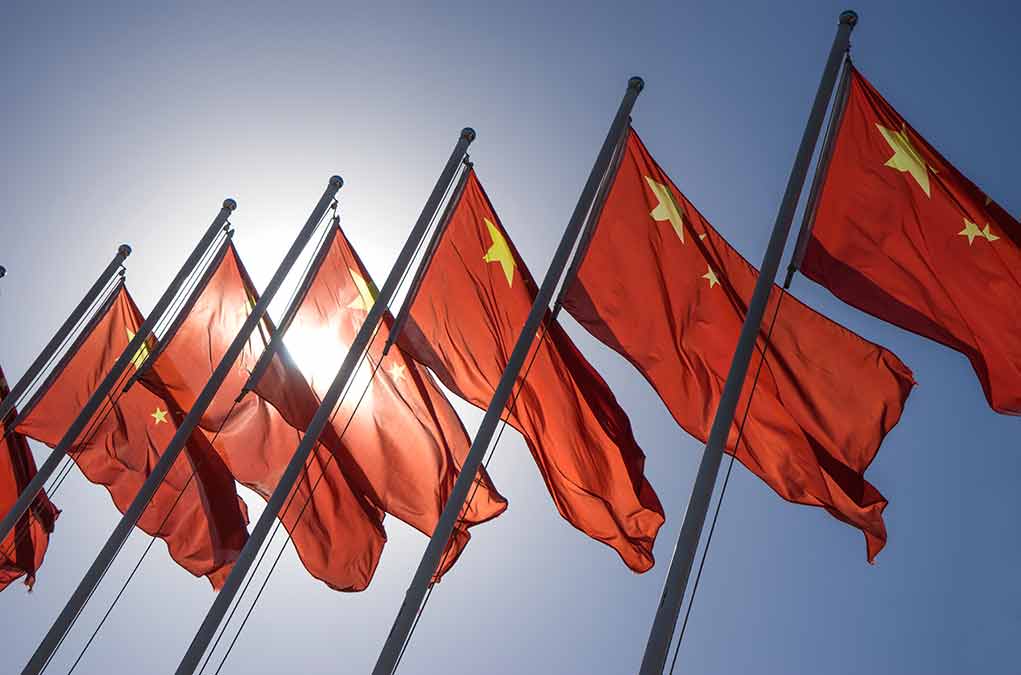
Coca-Cola, Starbucks, and 66 other major global brands are linked to an extensive state-run forced labor system in China, where Uyghur minorities are coerced to produce critical minerals essential for everyday products in the West.
Key Takeaways
- A 77-page report reveals 68 international corporations, including Coca-Cola and Walmart, are potentially using goods sourced from forced labor in China’s Xinjiang Uyghur Autonomous Region.
- China leads global production for 30 of the 44 minerals deemed critical by the U.S. government, with significant portions coming from regions using state-imposed labor transfers.
- The report identifies 77 minerals sector companies in the Uyghur region participating in forced labor programs that produce titanium, lithium, beryllium, and magnesium.
- Western companies in industries ranging from household goods to aerospace and defense are exposed to these tainted supply chains.
- Only one company, BASF, has responded to the allegations, denying current business relations with the implicated Chinese firms.
State-Sponsored Slavery in China’s Mineral Industry
An 18-month investigation by Global Rights Compliance has uncovered a disturbing web of forced labor in China’s critical minerals industry. The comprehensive report details how the Chinese Communist Party has systematically expanded mineral exploration, mining, processing, and manufacturing in the Xinjiang Uyghur Autonomous Region (XUAR) over the past decade. This expansion coincides with the regime’s intensified persecution of Uyghur Muslims, creating what investigators describe as a state-controlled forced labor apparatus that subsidizes Chinese companies while contributing to the systemic repression of ethnic minorities.
“Western companies in sectors ranging from household goods to nuclear energy are exposed to state-imposed forced labor in the Uyghur region through critical mineral supply chains,” said Caroline Dale from Global Rights Compliance.
The investigation found that 11.6% of the world’s titanium sponge, along with significant lithium, beryllium, and magnesium resources, comes from the Uyghur Region. China produces 92% of the world’s raw magnesium, with substantial output from Xinjiang. These minerals are fundamental components in everything from paint and consumer goods to aerospace technology and defense systems. The forced labor schemes not only violate human rights but also provide Chinese producers with an unfair economic advantage through what amounts to state-subsidized slave labor.
Corporate Exposure and Lack of Accountability
The investigation names 68 international corporations potentially exposed to goods sourced from forced labor in the Xinjiang region. Household names like Coca-Cola, Costa Coffee, Starbucks, and Walmart appear on this list, connecting everyday consumer products to human rights abuses. What’s particularly troubling is the near-complete silence from these companies when confronted with the evidence. Of all the companies implicated, only BASF responded to the allegations, denying current business relations with the implicated Chinese firms while failing to address past connections or their ongoing due diligence processes.
“Companies operating throughout the critical minerals industrial chain in the Uyghur region rely heavily on a government-backed network of state-imposed forced labor schemes,” explains Caroline Dale from Global Rights Compliance.
The report identifies 77 Chinese suppliers in the titanium, lithium, beryllium, and magnesium industries operating in Xinjiang that participate in government “labor transfer programs.” These programs are euphemistically described by the Chinese government as voluntary work opportunities, but substantial evidence reveals they are part of a broader strategy of forced assimilation and detention. Workers face severe consequences for refusing participation, including potential detention in so-called “re-education” camps where further abuses occur. President Trump’s administration took strong action against these practices through the Uyghur Forced Labor Prevention Act, but enforcement remains challenging.
China’s Mineral Dominance and National Security Concerns
The findings raise alarming national security implications beyond the humanitarian crisis. China now leads global production for 30 of the 44 minerals deemed critical by the U.S. government. This monopolistic control over resources essential for everything from consumer electronics to military equipment creates dangerous dependencies. The International Energy Agency has warned about the increasing concentration of critical mineral sources in just a few countries, with China maintaining a stranglehold on refining and processing. This dominance is no accident but rather the result of decades of strategic planning by the Chinese Communist Party.
“Mineral mining and processing in (Xinjiang) rely in part on the state’s forced labor programs for Uyghurs and other Turkic people in the region,” reports Netherlands-based Global Rights Compliance.
Predictably, Beijing has dismissed all allegations. Chinese Foreign Ministry spokesperson Lin Jian called the accusations “a complete lie fabricated by individual anti-China forces.” However, this denial contradicts a 2022 United Nations report suggesting China may have committed crimes against humanity in Xinjiang, with over 1 million Uyghurs reportedly detained. The report urges Western companies to conduct thorough supply chain due diligence and calls on governments to strengthen legislation like the U.S. Uyghur Forced Labor Prevention Act to ensure accountability and prevent American consumers from unknowingly supporting modern slavery through their purchases.




